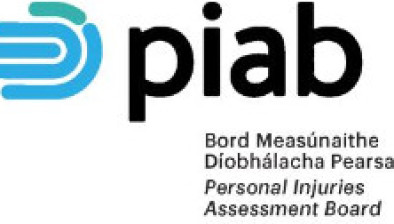Court of Appeal: Plaintiff ordered to pay differential costs and appeal costs after damages were reduced by court

Killian Flood BL
The Court of Appeal has made a differential costs order against a plaintiff in personal injuries proceedings after her award was substantially reduced on appeal. Further, the court ordered the plaintiff to pay the defendants’ costs of the appeal as well.

About this case:
- Citation:[2021] IECA 139
- Judgment:
- Court:Court of Appeal
- Judge:Mr Justice Seamus Noonan
The plaintiff had previously received €76,000 in the High Court, but this was reduced to only €41,000 by the Court of Appeal.
In deciding to make the costs orders against the plaintiff, the court said that the plaintiff’s injuries clearly fell within a category specified in the Book of Quantum and that any realistic assessment of the case would have led to the conclusion that the Circuit Court was the appropriate jurisdiction.
Further, the plaintiff failed to beat a tender offered by the defendants, which would have settled the proceedings entirely.
Background
The plaintiff took personal injuries proceedings against the defendants in the High Court as a result of a road traffic accident. Liability was admitted in the case, with only assessment of the plaintiff’s injuries put in issue by the defendants.
The matter proceeded to trial, where Ms Justice Bronagh O’Hanlon determined that the plaintiff was entitled to €76,000 in damages.
The defendants appealed the decision, arguing that it was too high when compared to the damage that was suffered by the plaintiff. Prior to the hearing of the appeal, the defendants wrote a Calderbank letter to the plaintiff, offering €42,236 plus Circuit Court costs as a tender to settle the case.
The plaintiff refused the Calderbank offer and made a counter-offer of €61,000 plus costs to settle the appeal proceedings. This was rejected by the defendants and the matter went to trial.
In the principal judgment delivered last year, the Court of Appeal determined that the plaintiff was overcompensated for her injuries and reduced her damages award. It was held that the plaintiff’s injuries clearly fell within a category contained in the Book of Quantum and that this ought to have been applied by the trial judge. As such, the plaintiff only received €41,000 following the appeal.
In light of this, the defendants brought an application for a costs differential order to be made pursuant to section 17(5) of the Court Act 1981 (as amended). It was argued that the plaintiff should only be entitled to her Circuit Court costs based on the overall value of the award. The defendants also sought the costs of the appeal.
Court of Appeal
Giving judgment in the case, Mr Justice Seamus Noonan granted the costs orders against the plaintiff. The court first considered whether to grant the appeal costs against the plaintiff, where the defendant had successfully reduced the damages award below the High Court jurisdiction. The court considered MN v SM [2005] 4 IR 461 and Higgins v The Irish Aviation Authority [2020] IECA 277, noting that there was potential unfairness to both parties if a costs order was or was not made.
The court accepted that there was some unfairness for a plaintiff to have to pay appeal costs where the plaintiff was not at fault for the extent of the original award and would have to pay both a defendant’s lawyers and his own lawyers out of the legitimate award. However, it was also a potential injustice to allow a plaintiff their appeal costs where a defendant was successful in reducing a damages award below the jurisdiction of the trial court.
The court was persuaded to order appeal costs against the defendant based on Shannon v O’Sullivan [2016] IECA 105, where it was held that the refusal of a Calderbank offer should lead to costs of the appeal being awarded against the plaintiff. The court held that this is what occurred in the case and that there was no reason to diverge from that approach.
The court then turned to the issue of making a differential costs order. The court considered O’Connor v Bus Atha Cliath [2003] 4 I.R. 459, in which the Supreme Court held that the legislative purpose of section 17(5) in the 1981 Act was to provide strong incentive for cases to be brought in the lowest possible jurisdiction. The case stated that a judge’s discretion to award a differential order was triggered merely by the value of the award being lower than the minimum jurisdiction of the trial court.
Mr Justice Noonan also considered the related cases Moin v Sicika and O’Malley v McEvoy [2018] IECA 240, in which the Court of Appeal held that where an award is significantly within the jurisdiction of a lower court, it is incumbent on the trial judge to make a differential costs order unless there is good reason to the contrary. Again, the court stated that this was to give effect to the legislative intention of section 17(5).
Applying the law to the present case, the court held that the overall value of the case was well within the Circuit Court jurisdiction and, further, that the outcome of the case was predictable by reference to the Book of Quantum. The court said that no realistic assessment of the plaintiff’s injuries would have landed the case in the High Court, particularly having regard to the plaintiff’s medical reports.
The court rejected the submission that the defendant should have brought a motion to remit, stating that the plaintiff could not “escape the consequences of her choice, freely made, by the contention that the defendants ought to have attempted to override that choice”.
The court said it was regrettable that the plaintiff may now have to pay the costs of the appeal and the differential costs, through no fault of her own. However, the legislative intention would be defeated if the court in its discretion refused to make the costs orders.
Conclusion
In light of these findings, the court granted the costs of the appeal to the defendants. The plaintiff was allowed her Circuit Court costs (with no certificate for Senior Counsel), with the defendants granted the additional costs of defending the proceedings in the High Court pursuant to section 17(5) of the Act.








